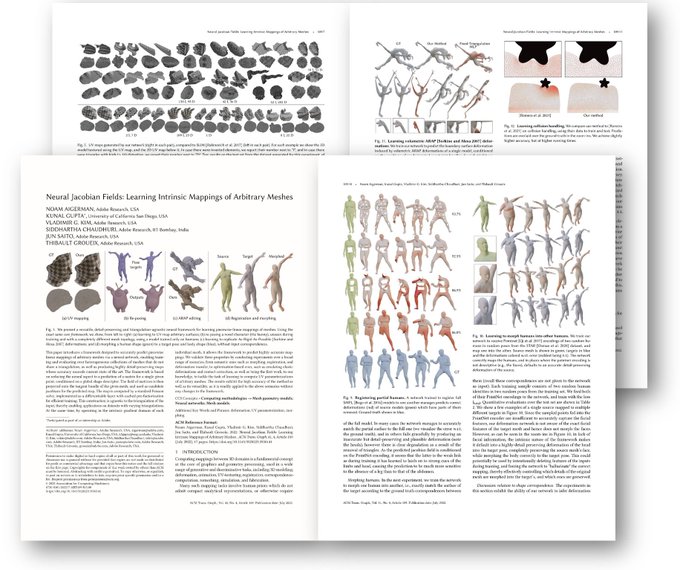Neural Jacobian Fields: Learning Intrinsic Mappings of Arbitrary Meshes
This paper introduces a framework designed to accurately predict piecewise linear mappings of arbitrary meshes via a neural network, enabling training and evaluating over heterogeneous collections of meshes that do not share a triangulation, as well as producing highly detail-preserving maps whose accuracy exceeds current state of the art. The framework is based on reducing the neural aspect to a prediction of a matrix for a single given point, conditioned on a global shape descriptor. The field of matrices is then projected onto the tangent bundle of the given mesh, and used as candidate jacobians for the predicted map. The map is computed by a standard Poisson solve, implemented as a differentiable layer with cached pre-factorization for efficient training. This construction is agnostic to the triangulation of the input, thereby enabling applications on datasets with varying triangulations. At the same time, by operating in the intrinsic gradient domain of each individual mesh, it allows the framework to predict highly-accurate mappings. We validate these properties by conducting experiments over a broad range of scenarios, from semantic ones such as morphing, registration, and deformation transfer, to optimization-based ones, such as emulating elastic deformations and contact correction, as well as being the first work, to our knowledge, to tackle the task of learning to compute UV parameterizations of arbitrary meshes. The results exhibit the high accuracy of the method as well as its versatility, as it is readily applied to the above scenarios without any changes to the framework.
PDF Abstract
